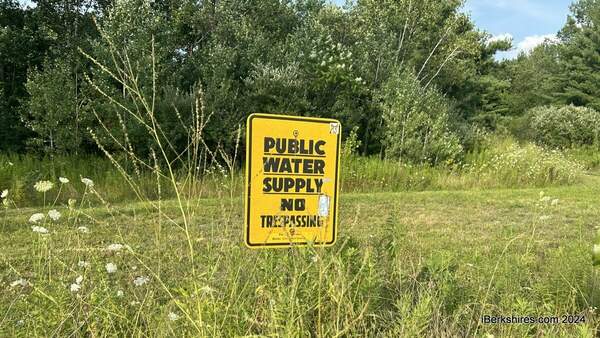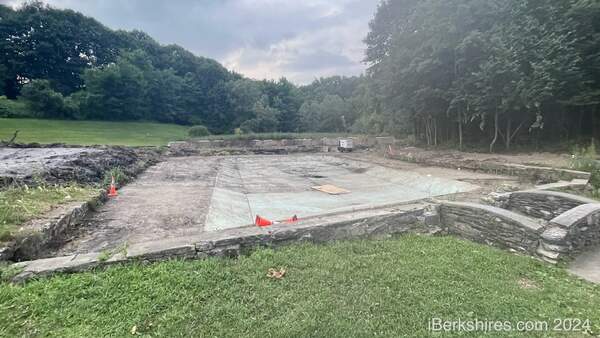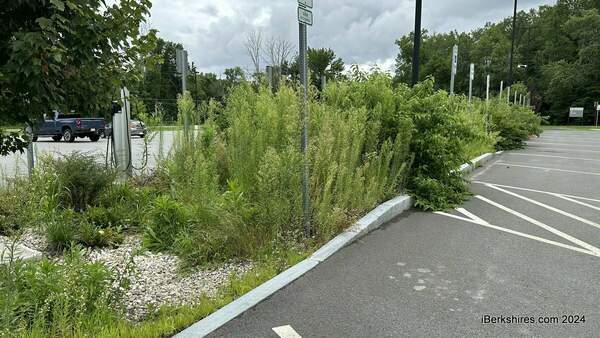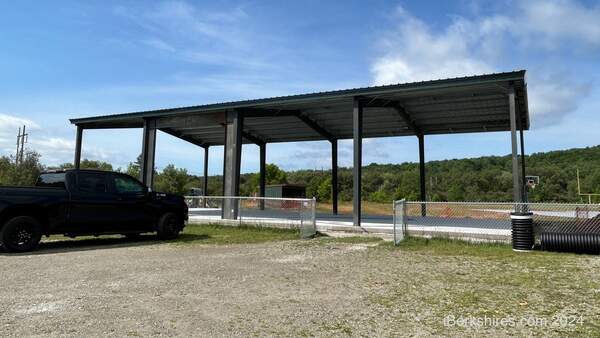BOSTON — Climate Chief Melissa Hoffer published a report with recommendations to implement the Healey-Driscoll Administration's whole-of-government approach to addressing the climate crisis.
The report makes recommendations to the Governor regarding the climate-related practices and policies of executive department agencies. It presents 39 recommendations focused on concrete strategies to finance investments necessary to meet emissions reductions mandates and resilience goals, ensure spending is consistent with the statutorily-mandated Clean Energy and Climate Plan, accelerate electrification of the power, building and transportation sectors while keeping energy justice front and center, amplify Massachusetts' global leadership in clean energy and climate tech, grow the workforce necessary to build a clean energy future, and protect the natural and working lands so vital to achieving net zero by 2050.
"On day one of this administration, we created the Office of Climate Innovation and Resilience and appointed the nation's first cabinet-level Climate Chief because we know that addressing the climate crisis requires a comprehensive, coordinated approach across all of state government," said Governor Maura Healey. "Our administration has already made significant progress on climate initiatives since taking office, and Chief Hoffer's recommendations will help us build on this progress to advance the ambitious climate and clean energy policies that we need to protect our future and power our economy."
Chief Hoffer's recommendations include:
Funding
All agencies must think creatively about ways to leverage innovative clean energy, decarbonization and resilience funding tools to support policy goals. Massachusetts should prepare economic analyses of the investment needed to achieve both the greenhouse gas emissions reductions within the Clean Energy and Climate Plan (CECP), including the 2050 Net Zero mandate, and ResilientMass, the statewide hazard mitigation and climate adaptation plan. These analyses should be paired with specific funding and financing strategies. Agencies should analyze feasible policies that both reduce emissions and generate additional revenue streams to invest in further decarbonization. The Division of Insurance should accelerate its efforts to manage climate risk and resiliency for the Massachusetts insurance market.
Capital investment, asset management, grants, procurement, and environmental justice
Broadly speaking, discretionary state spending should align with and not undermine the CECP emissions reductions mandates. The administration prioritized climate and environmental justice considerations in the capital and operating budget development process and should now formalize a protocol for evaluating proposed capital projects to align with the CECP. Recommendations in the report include continuing to center environmental justice in climate policy and program implementation; implementing a statewide plan for electrifying the state-owned vehicle and equipment fleet; ensuring grant-making and other incentives are used as a tool to drive and amplify decarbonization and resilience efforts; and updating procurement practices to require disclosure of emissions and climate risk.
Emissions mitigation
The report presents a range of recommendations to reduce greenhouse gas emissions and achieve the mandate of Net Zero emissions in 2050. These include reviewing the best use of ratepayer funds currently allocated to Mass Save in light of existing building decarbonization needs and accelerating work to establish a decarbonization clearinghouse; issuing an annual climate report card on the state's progress to meet CECP emissions reduction mandates; taking action to reduce aviation emissions; and ensuring new housing production and preservation and construction of new schools is consistent with building sector electrification and decarbonization mandates. Last month, the MBTA announced a new Climate and Resiliency Policy and Planning team that will be tasked with decreasing the Agency's environmental footprint and increasing the resilience of the MBTA system.
Public health and resilience
Massachusetts must respond to the impacts that climate change is having and will have on our communities, ecological systems, built environment and infrastructure. The report's public health and resilience recommendations include efforts to establish consistent guidance, standards and use of statewide climate science and data; develop and implement a Comprehensive Coastal Resilience Plan; prioritize investment to develop more energy resilient infrastructure, such as microgrids, that can maintain power to critical infrastructure during extreme weather events; and ready Massachusetts for the increasingly disruptive and dangerous impacts of climate change such as inland flooding, heat, migration, crop loss, droughts, and adverse health effects, including increased disease transmission and mental health issues.
Workforce
Massachusetts must build the workforce needed to power the clean energy transition and make communities more resilient. Recommendations include developing a comprehensive, cross-agency plan that includes measurable targets and goals to build a clean energy, climate, and resilience workforce. The report also calls for the establishment of a Climate Service Corps to drive awareness, engage residents and institutions, and develop career paths integral to climate-critical solutions. The Climate Corps would provide volunteer opportunities and have programs focused on youth, preparing them for good-paying jobs in clean energy and climate resilience.
Economic Development
Massachusetts should develop and implement a comprehensive clean energy and climate economic development plan that results in the creation of new, good paying jobs and further strengthens long-term economic growth. An investment strategy must ensure that climate tech companies have access to the capital required to innovate and scale in Massachusetts.
Education
Massachusetts should enhance its efforts to educate communities, including students, about the climate crisis. These efforts should include promoting a basic understanding of climate science and fostering the capacity of communities to deploy climate solutions. The administration will work to support the broad-based adoption by public school districts of a K-12 curriculum addressing climate change.
The report notes that a number of the program-specific recommendations address work that is underway, much of it initiated since the start of the Administration, including: two executive orders announcing the ban to procure single-use plastic bottles by the Governor's Office and executive branch agencies and establishing and implementing biodiversity goals for Massachusetts; the creation of the Massachusetts Community Climate Bank; and the release of the ResilientMass Plan.
| If you would like to contribute information on this article, contact us at info@iberkshires.com. |















